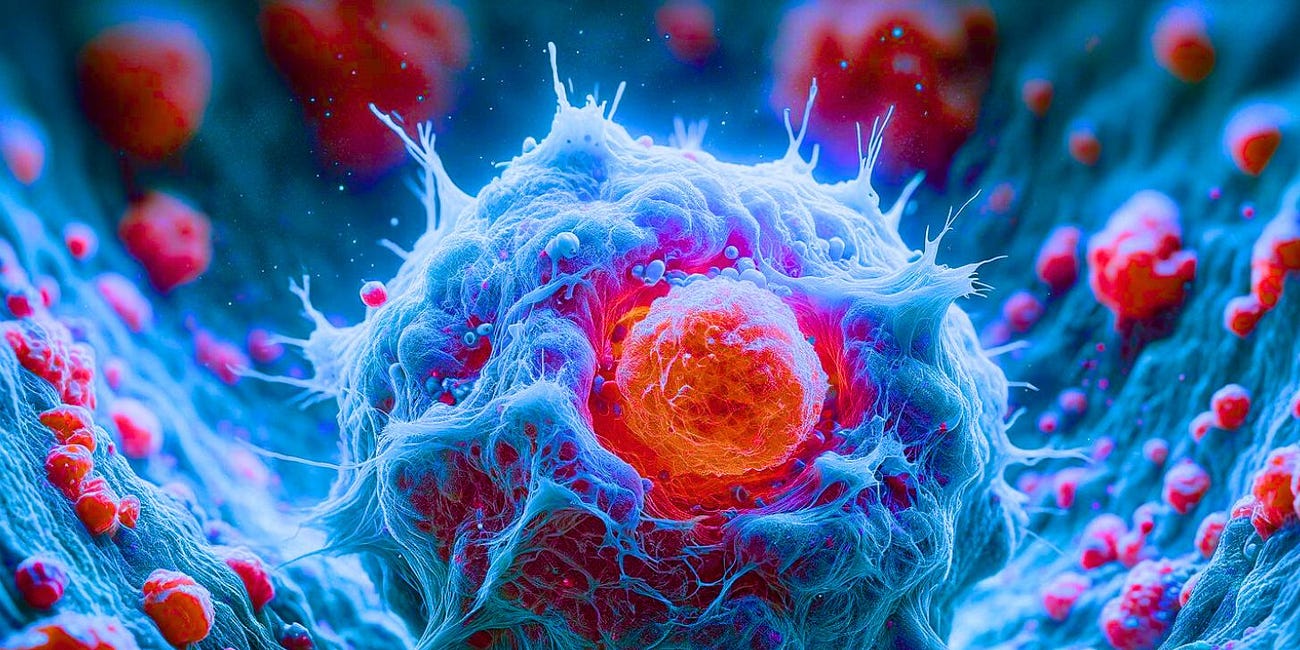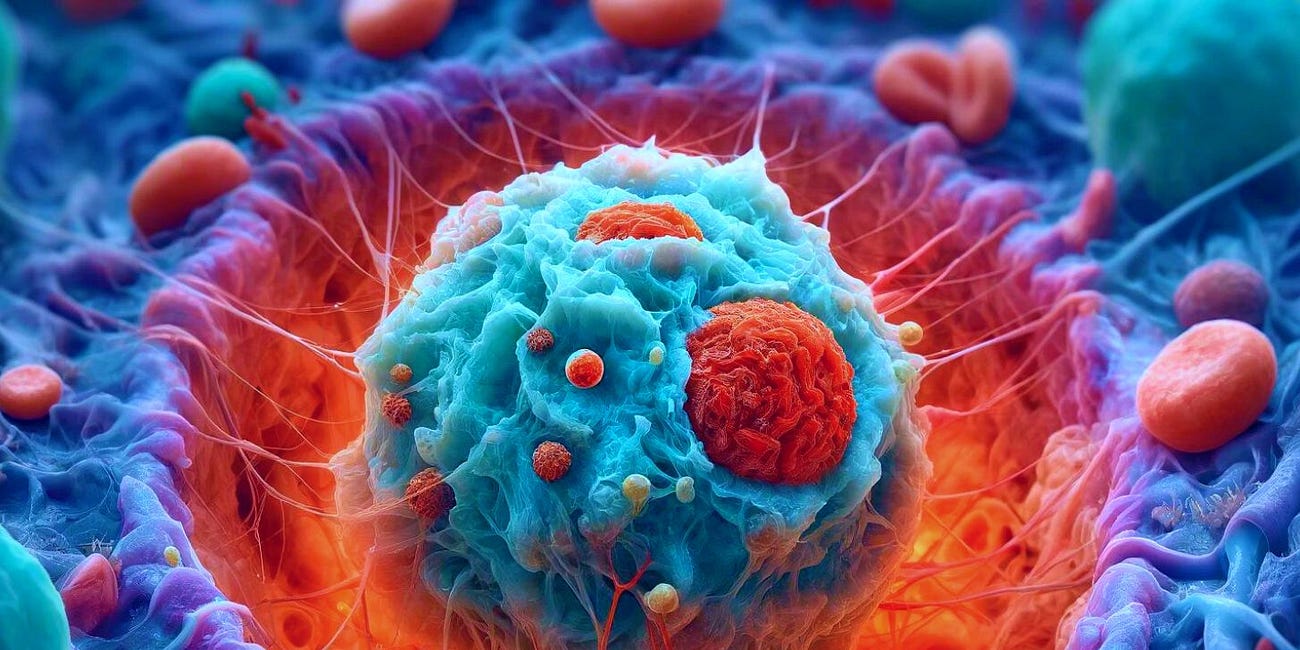COVID Jab Spike Protein Remains in Body 'Up to 245 Days'—Not a 'Few Weeks' as Health Authorities Claimed: 'MedRxiv'
Spike protein recently showed to support cancer growth.
A March publication in the peer-reviewed medical journal MedRxiv confirms that the spike protein produced by cells after mRNA COVID-19 injection remains in the body for “up to 245 days,” contradicting claims from mainstream health authorities.
Follow Jon Fleetwood on Instagram @realjonfleetwood / Twitter @JonMFleetwood
For example, in November 2022, Nebraska Medicine claimed that spike proteins generated by COVID jabs only “last up to a few weeks, like other proteins made by the body,” citing the Infectious Disease Society of America (IDSA).
“The immune system quickly identifies, attacks and destroys the spike proteins because it recognizes them as not part of you,” the Nebraska Medicine report asserted.
However, the new MedRxiv study cites “concerning reports about people experiencing new onset persistent complications” after more than 30 days following injection with Pfizer, Moderna, Johnson & Johnson, and AstraZeneca COVID jabs.
The researchers looked at 50 individuals who received one of the approved COVID shots and experienced new-onset Post-Acute Sequelae (PASC)-like symptoms.
The term ‘Post-Acute Sequelae’ refers to the lingering consequences or conditions that can occur after an acute illness or injury.
The average age of those patients was 41.8 years old, with 36 females and 14 males.
The researchers also looked at 45 individuals post-vaccination without symptoms as controls.
The study confirms that the jab spike protein lingers in the body for an average of 105 days.
“[T]he average days from last inoculation with a COVID vaccine and time of blood draw for this study was 105 days,” the publication reads.
However, the spike protein was found in patients’ blood even after 245 days.
“The greatest time period from inoculation to blood draw was 245 days and the shortest time period was 38 days,” according to the study.
Twenty-seven individuals reported receiving the BNT162b2 (Pfizer) shot, 15 received mRNA-1273 (Moderna), 7 received Janssen (Johnson and Johnson), and 1 individual received the ChAdOx1 nCoV-19 (AstraZeneca) vaccine.
Follow Jon Fleetwood on Instagram @realjonfleetwood / Twitter @JonMFleetwood
The new findings come as Brown University researchers revealed in April that the SARS-CoV-2 spike protein interferes with the effectiveness of chemotherapy treatment for cancer.
In other words, the spike protein can worsen the condition of cancer patients.
Testing showed cancer cells with the spike protein survived better after chemotherapy.
This happens because the spike protein interferes with a key protein in cancer cells called p53, which normally helps suppress tumors.
While the study did not analyze the COVID shot directly, one of the authors, Dr. Wafik El-Deiry, told The Epoch Times that the data imply the COVID vaccine spike protein could similarly support cancer growth.
“Our goal was to study spike protein regardless of its origin,” said El-Deiry, director of the Cancer Center at Brown University. “We focused on spike that may come from infection or any other way it can be expressed in human cells,” which “would also apply to vaccine-made spike.”
Follow Jon Fleetwood on Instagram @realjonfleetwood / Twitter @JonMFleetwood
COVID Spike Protein—Present in Pfizer, Moderna mRNA Jabs—Helps Cancer Cells Survive Chemotherapy: Brown University Study Preprint in 'BioRxiv'
Brown University researchers posted a preprint study last month in BioRxiv, an open-access preprint repository for the biological sciences, confirming that the SARS-CoV-2 spike protein interferes with the effectiveness of chemotherapy treatment for cancer.
COVID Vaccinated Could Shed Lipid Nanoparticles, Spike Protein Through Blood Transfusion, Breastmilk, Organ Transplantation, Exhalation, Skin-to-Skin Contact: New Preprint Study
A new study made available online today in preprint analyzes exposure to COVID-19 vaccine components such as lipid nanoparticles or spike protein.
mRNA COVID Jab Ingredient N1-Methyl-Pseudouridine (m1Ψ) 'Stimulated Cancer Growth and Metastasis': 'International Journal of Biological Macromolecules'
A new study published earlier this month in the International Journal of Biological Macromolecules confirms that an ingredient in mRNA COVID-19 injections called N1-methyl-pseudouridine (m1Ψ) increases cancer growth and spread.
Excess Cancer Deaths Spike from -1,379 in 2020 to +7,162 in 2022 'After Mass Vaccination' with mRNA COVID Jabs in Japan: Journal 'Cureus'
A brand new peer-reviewed study published in Cureus on Monday found significant increases in age-adjusted mortality rates of all cancer types in 2022 after the majority of the Japanese population received doses of the COVID-19 mRNA vaccine.








